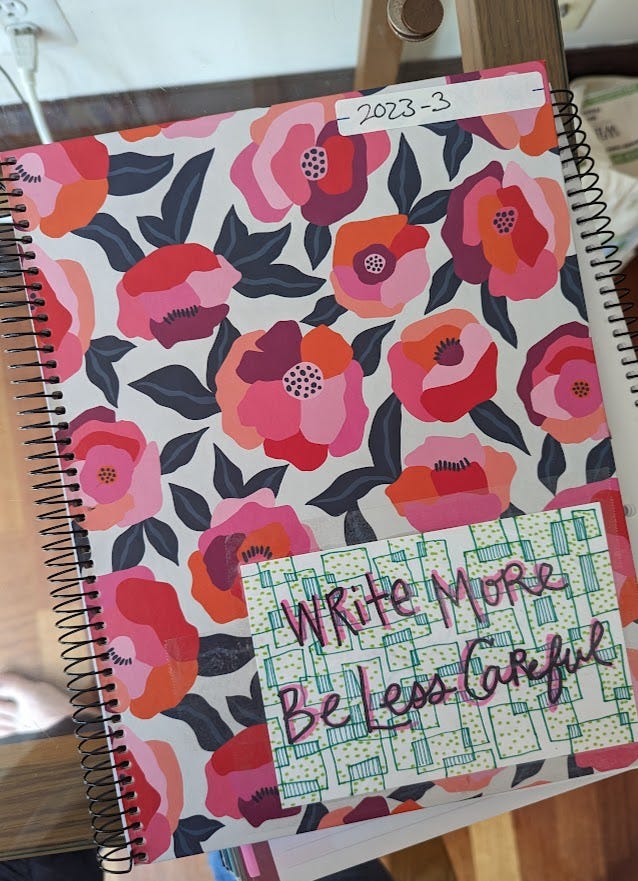planning party round-up!
our best ideas for planning your fall writing life for productivity and joy
Hi friends! This will be quick today—it’s a holiday, and I still have so much work to do to get ready to back to teaching tomorrow!
I’m sending out the recording from last Sunday’s 🎉planning party🎉, and I wanted to also share some big ideas that I think will be useful for you as you’re setting goals and making plans for your writing life this fall. I’ve typed up some notes and shared our guiding questions—that’s right below the video.
What’s important to you and why? (And what can you decide not to do, or do at a lower level of intensity?)
During the party, we talked about letting go of things like housework a bit, or asking for help/thinking about things we can outsource. One smart writer shared that in the past, she’s sometimes gotten a couple weeks of meal kits when she’s been too fried to cook, and she suggested the wise innovation of doing that proactively, before she’s totally burned out!)
And if you want some more reflection, I shared three reflection questions in this post, from the end of 2022:
What am I proud of this year?
What was challenging for me?
What surprised me?
Start by figuring out the time that’s actually available to you.
This is what Erin and I are talking about at the beginning of the video, then the first chunk of work time is folks actually marking up their calendars and thinking about what time is available to them.
Figure out a system for tracking your progress toward your goals.
Erin uses a spreadsheet, which she talked about here, and which I also wrote about here.
I set deadlines for myself based on milestones—things like “finish the research for chapter 6 by the end of this week, or draft the chapter by x date”—and I’ve been giving myself stickers in my planner to note my good work. I also keep a kind of progress log in my notebook—what I’ve learned each day in my research, what I figured out about the structure, what questions I still have. There’s nothing fancy or formal about it, but it really helps me. (The idea of the process notebook came from my interview with Keri Bertino, though I just keep it as notes in my regular notebook.)
A big thing we’re talking about here is having a system that brings you joy and helps you see how hard you’re working.🤩
A couple extra tips:
We talked about using Gretchen Rubin’s Four Tendencies to think about accountability systems for writing, which is something I wrote about here.
We also talked about batching tasks. That means if I have errands to do, I try to do them all on one day, so they don’t leak into my writing time all week. I also do things like pitching, querying, submitting—things that require a kind of outward-facing energy—in a batch, and try to preserve other time for creative production, which to me feels more inward-facing.
If you came to the planning party, I’d love to know how your planning is coming together and anything that was helpful for you, or any good tips you’d like to share!
And if you didn’t come but you’re catching up with us now, feel free to ask questions below, or to share your good ideas and advice!
I’ll be back on Wednesday with a great essay and writing exercise from Emily Mohn-Slate, on writing in a seasonal rhythm—as in, if you don’t have a life where you can write every day! as some people insist is essential, what are some other ways to manage your writing time? (Emily just started her own great newsletter, Be Where You Are, and I think you’ll want to check it out!)





and JOY! Yes!!